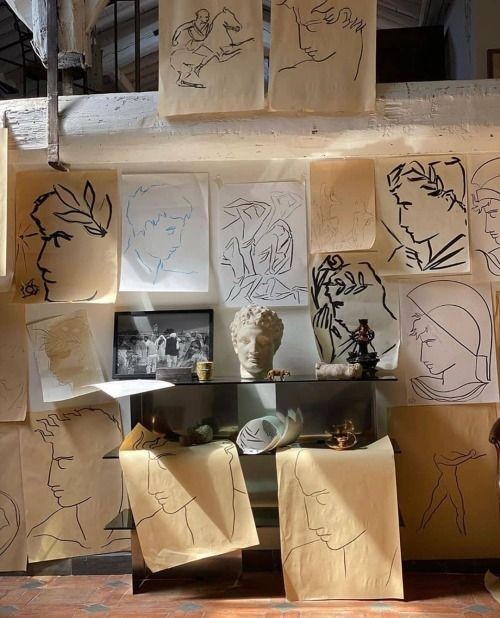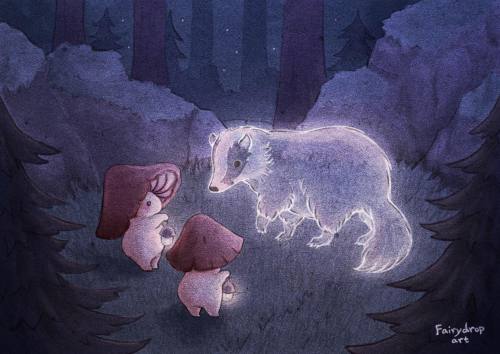Lemushroomman - Mushroom Man

More Posts from Lemushroomman and Others
same
as an aroace, im particularly dangerous, because i wont fuck or marry. i only know how to kill.








But I protect myself, I surround myself with books, their silence does not demand anything, they exist , they are alive , they are for anyone to open, unlike us human being.
–Bo Carpelan, tr. by David McDuff , from "Urwind". Published c. 1993
Tips on how to study history by an history student
I've had this idea at the back of my mind for a while now. The thing is that as an history student I very often have people ask me for tips on how to approach the subject when they have to study for an exam. Even before university, since I was the history nerd in all my friends groups I had people either ask me for tips, or for help studying the subject, and memorizing stuff. I fully understand that it can be a tough subject, expecially if you don't have a professor that teaches with passion, and that maybe expects you to memorize a bunch of dates without much explaining. If you are used to study other subject, and you only have a couple of history classes, you might find it difficult to approach it, because the study method you normally use doesn't work. So here are a few of my tips on how to approach history, some of them are honestly quite silly, but believe me they truly work.
Aim to understand the processes and not simply memorize everything by heart
This is one of the funamental things about history. I know some teachers don't care and will just tell you to memozire a bunch of dates but that is useless. The true aim of history is to understand the processes that took place in the past, how they are linked to each other, the consequences of actions, etc. Not only you will get more out of what you are studying, but it makes the job much easier. Everything that happened in history was the consequence of a previous action, and has caused something. If you truly understand the passages it will be much easier to remember the course of events.
Understand that events in history are just like the events in the plot of a tv show or a book
I bet that everyone here could write an essay on the full plot and characters of their favourite tv show or book, without looking for any references. Even if the characters are a lot, and have terrible names, you probably remember them all, can tell them apart, and know perfectly everything that happens in the story. History is the exact same thing. The only difference is that usually you don't get a chance to get invested in the characters, and don't really differenciated them. What I have always suggested it to try to see whatever period of history you have to study as a book, or a tv show. The events are the plot of the story, and historical figures are the characters. This point is fully linked to the next two tips, that are all about characterizing historical figures to better remember about them.
Put a face to the name
Look for paintings or pictures of historical figures. being able to imagine them with an actual face is very helpful. You'll find that a lot of historical figures have characteristics that make them recognizable. I truly believe that being able to actually imagine whatever historical figure, helps a lot with remembering whta happened. I fully try to imagine the whole movie in my head when I am studying, and this passage is fundamental.
Look for further silly informations on historical figures
This sounds very stupid but bare with me for a second. This is an additional step to characterize the historical figure you have to learn about. I find that associating them not only to their face, but also to very random informations, can help so much with remembering about them. I strongly believe that the stupidest the information the better, because it will probably be easier to remember, and it's less probable something they have in common with other people. I know for a fact that it's the silly things I will remember (which is something that will come up again in another tip). Here are some examples. Giacomo Leopardi, one of the most famous poets of Italian litterature, known mainly for litteraly inventig cosmic pessimism, hated soup so much as a child, he fully wrote a poem against it. Roman Emperor Claudius is said to have tried to hyde from the praetorian guards that were looking for him to put him in charge of the empire. He thought they were looking for him to murder him, and instead he became emperor. These are just examples, but they are very simple recognizable facts that stay with you and help you to have a full image of the historical figure you are studying.
Picture the events like a movie in your head
You now have fully characterized subjects, and have to learn what they did, and what happened, when reading and then reviewing try to imagine the events as if they were a movie. Fully picture things in your head (again paintings and photographs can help a lot in this step). This association, and the fact that you are linking one event to the next in a sequence will help you memorizing facts.
The sillier the retelling is the better you will remember it
Depending on the subject you are studying this could potentially be controverse. Historical facts are very serious, and they should be percieved as such, not only because it's actual stuff that happened in the past, but also because oftentimes we still have consequences today. But part of me also believes that we should make fun of historical figures sometimes, often it helps with making them smaller, less scary if you will. I won't dwell too much on this subject since is huge, but what I mean with the purpuse of studying history is quite simple. When studying history, expecially if you have a chance to review it with someone, try to retell it in a funny or silly way to each other. I know for a fact that what I remember better about past classes, are the informations on which someone made some kind of joke or stupid comment. I have no idea what's the science about it, but whenever I have helped someone studying (whatever was the subject really) the stupidest ways I explained things the better people seemed to remember them. This is surely quite a silly tip, but believe me when I tell you it works. (Honestly I also personally find that when I get really mad about something that happened, I remember it quite well. So probably the theory is that if there's strong emotions involved you have a better chance to remember facts. And there's a lot in history to get angry at, so keep this in mind too).
On memorizing dates
This is the most dreadful part of studying history for everyone, even for us who actually chose to study the subject. As I said I refuse to see history as a long list of dates to learn by heart, but surely there's important dates to remember, and the periodization is fundamental to understand events. I have different methods. The first is one is to have a specific highlighter that I use only for dates in my notes. I usually use yellow, because it's the strongest colour I own, and it can't be mistaken for whatever other colour I use to highlight other informations. Secondly When there's a big list of dates I like to have a second set of notes, only regadring those dates. I write everything down in chronological order, so that I can see what happened during the same period of time, and write a word/ sentence to describe each fact. Since I usally study long periods of history all togheter I like to divide the list in sections depending on the century. This is very hepful to create smaller groups of dates. After having this list, since there's no other way to remember all of that, I try to repeat it until I memorize it. What I normally do is repeate it at least once a day, much better if I manage twice. Usually I do it as the first thing before reviewing the full set of notes, and then once at the end of my daily studying session. I begin by only reading it outloud (I think reading outloud helps much more so I highly reccomend doing that). When I am starting to memorize things I start switching the order of dates so I read them from the last of the list to the first one. This helps because if you read the same list again and again, you'll start to remember informations mostly because you associate them to the previous and next points. By breaking up the usual order of the list you force yourself to only link date and fact. The last thing is to randomly go through the list and picking, for this same reason. I also would reccomend copying the list multiple times, and trying to rewrite it without looking at the original.
Review with someone who has no clue what you are talking about
This is actually a general study tip that works for any subject. I know it's not possible for everyone, but I highly reccomend finding someone willing to listen to you talking for a couple of hours on what you are studying. The less they know the better, because they will ask you questions. The thing is very simple, if you explain what you are studying to someone who has very little knowledge on the subject, you will be forced to : 1. Be clear in your exposition, 2. Explain clue points, 3. Have a very clear idea of what you are talking about. It's a great exercise to test if you have truly understood the passages, and sometimes it foces you to understand things you are insicure about. It is one of the most useful tips of this list in my personal opinion. This study tecnique has helped me so much in the past, and I still use it to this day. I usually annoy my father with this, who is quite interested in history, so he always challenges me with great questions. I also found that helping someone who is struggling with the class was helpful, because not only I had to understan the passages, but I had to force myself to help someone else understand those same informations for the test. Reviewing out loud on your own is always very importan, but this addition when possible truly changes the game.
This is my very standard set of tips on how to study history. I might think of others in the future, and in that case I will make sure to add them on here, for anyone who needs them.
Untill then I hope that this can be useful for someone out there. If I was unclear on any points, feel free to tell me and ask me for clarifications. Same goes if you have other doubts or a specific problem with studying history. My inbox is always open and I am very happy to be helpful if I can. Studying is fun and all, but it's much easier if we help each other in the process.
I'm sorry it was a super long post, thank you for reading, and good luck with your tests whatever they may be on.

Badger Ghost
SPACE KITTY!!!

Void cat but space, with moon for eyes~
Learning by doing: my approach to self-studying languages

Hi! I have a very short attention span, and I have never really been able to make it through a course or textbook without giving up straight away, so I have never really been able to learn languages in the traditional way. I also very easily get bored with learners material, so I mostly stick to native material to consume my target language. Here is how I do it at the beginner level!
I usually start off with an app to learn the basics of the alphabet, vocabulary and grammar. Most of the times, I use Duolingo. I rarely get past the first few units before I jump into native material. Still, this is a good jumping off point.
When I start with native material, I usually use YouTube videos (with subtitles in the target language), and focus on spoken language, because spoken language is less overwhelming, and involves less complex language and grammar. At this point, I find that books are far too dense and complex for me to handle. Others might enjoy the challenge. My current favourites for this are LingoPie (for French, Spanish, German, Italian and Russian) and Viki (for Korean, Japanese and Mandarin Chinese).
I learn the most important words and phrases as I go. I do NOT look up every word, unless I can understand at least 70% of the language. For this, I will try and write the words and phrases down, and memorise them. I might use a flashcard app too (Anki is my fave, but Quizlet and Memrise are good too). For languages like Japanese and Chinese that have lots of characters to memorise, I will use an app (wanikani and chineasy are my faves). I always make sure that I know how to pronounce and understand each word or phrase.
I will start texting native speakers in my target language on apps like Tandem and HelloTalk. I look up words as I go, and will ocasionally try speaking.
I start shadowing (i.e. repeat after native speakers, imitating the intonation and pronunciation). I use Easy Languages for this.
After a while, I start reading. I’ll usually start with wikihow articles, or fluentu articles in my target language. I’ll write down new words, test myself on them until I get them correct, and then put them into anki to review.
After a while, I’ll formally study some grammar. I’ll usually use a textbook for this. However, I don’t necessarily do it in a traditional way. I go through the entire textbook and make a cheat sheet which condenses all the information in it to a few pages. I’ll review it regularly, and do LOTS of writing practice. For irregular verbs, I’ll just use flashcards, and write them down repeatedly.
Then, I’ll get a speaking buddy (I usually find one on discord) and speak with them a few times a week.
After a while of doing all of this, I start reading fanfiction (usually translations of my faves). It’s difficult, but I try to read intensively (i.e. look up every word).
At this point, I start journaling, and posting on the website journaly.
I’ll listen to podcasts like innovative languages, coffee break languages and language transfer. These are usually good for learning about grammar.
I start intensively reading serious content once I feel like I’m at a confident B1 level. I would suggest using proper newspapers (like le monde for French or BBC for English) and try studying one article daily. After a while, you can start reading a YA book (try something you’ve never read before in any language). Study it chapter by chapter fairly intensively, and then reread it again and again until you understand the story. After you’re finished with a chapter, put the new vocabulary into an app and review fairly regularly.
At the B1 level, listen using two sources: intermediate podcasts and native material. Intermediate podcasts are usually labelled as such, and are IN the target language, but about various topics, like culture or history (innovative languages have some, for french there is inner french, piece of french, news in slow french and RFI:Savoirs, for Spanish there is dreaming Spanish and news in slow spanish, and for Korean there is Iyagi). For native material, continue watching youtube videos about topics that interest you, and consider watching both the news and films/TV shows.
At this point you should be able to construct gramatically correct (mostly - if you still have problems then go through a grammar course, or work through a textbook) and fairly complex texts. I would suggest now learning some essay phrases and writing an essay. You’ll be terrible at first, BELIEVE me, but the more you practice the better you get. You could also start trying to write fanfiction (tip: use full phrases you have found in other books or fanfiction).
Continue doing what you are doing (reading intensively and widely, speaking with your buddy, listening, writing essays and short stories) and I think that after a while you will be able to say you are conversational in another language.
Thanks for reading this post! I hope it was useful! (Also haha ig my break from langblr is over lol).
Scientist Stereotypes
Biologist: Can't do math
Theoretical Physicist: Can’t do anything but math
Geologist: Rock collection addict
Military Scientist: Meet the Engineer TF2
Archeologist: Thinks about the Roman Empire more times a day than most men think about sex
Sexologist: Thinks about sex more times a day than most men think about the Roman Empire
Chemist: A pyromaniac and/or is very fun at parties
Science Communicator: Is only fun at parties when everyone else there are nerds
Mycologist/Entomologist: They are VERY interested and passionate about gross things and THAT IS YOUR PROBLEM
Computer Scientist: gay
So I got this app, NHK for school, and it’s wonderful immersion for Japanese learners.
It’s made for school kids. It goes from grade one to middle/high school. (I’m using grade one, personally.)
They have a variety of school subjects. My favourite are the grammar and vocab ones, specifically these guys


Although I don’t understand a lot of what’s happening (I’m a TOTAL newbie. Only three weeks of Japanese under my belt) the little practice exercises after each section is so helpful!
I’m sure it would be fun for a high level learner as well, and it’s a nice way to get some insight into what kind of stuff Japanese children are taught, ahaha.
indeed
queerplatonic in a "i feel a deep desire for an intimate but non-romantic/sexual life partnership" way, but also queerplatonic in a "i take all my platonic relationships way more seriously than most people do and this has led to so much heartache oh god" way

How crescent moons are made 🌙
-
 idk-my-username liked this · 4 months ago
idk-my-username liked this · 4 months ago -
 crowleychild liked this · 5 months ago
crowleychild liked this · 5 months ago -
 solar-cycle reblogged this · 8 months ago
solar-cycle reblogged this · 8 months ago -
 rotweed liked this · 1 year ago
rotweed liked this · 1 year ago -
 biacedangernoodle03 reblogged this · 1 year ago
biacedangernoodle03 reblogged this · 1 year ago -
 biacedangernoodle03 liked this · 1 year ago
biacedangernoodle03 liked this · 1 year ago -
 monbijou liked this · 1 year ago
monbijou liked this · 1 year ago -
 helloladder liked this · 1 year ago
helloladder liked this · 1 year ago -
 nothingrotten reblogged this · 1 year ago
nothingrotten reblogged this · 1 year ago -
 nothingrotten liked this · 1 year ago
nothingrotten liked this · 1 year ago -
 crabapple10 liked this · 1 year ago
crabapple10 liked this · 1 year ago -
 moonfl-wr liked this · 2 years ago
moonfl-wr liked this · 2 years ago -
 phantom-of-the-north liked this · 2 years ago
phantom-of-the-north liked this · 2 years ago -
 irlmycenaadonis reblogged this · 2 years ago
irlmycenaadonis reblogged this · 2 years ago -
 pearlnareff reblogged this · 2 years ago
pearlnareff reblogged this · 2 years ago -
 c-rmen liked this · 2 years ago
c-rmen liked this · 2 years ago -
 cutekeencat liked this · 2 years ago
cutekeencat liked this · 2 years ago -
 icarus-ornithoptery reblogged this · 2 years ago
icarus-ornithoptery reblogged this · 2 years ago -
 icarus-ornithoptery liked this · 2 years ago
icarus-ornithoptery liked this · 2 years ago -
 samhainsstuff liked this · 2 years ago
samhainsstuff liked this · 2 years ago -
 lordofkaos liked this · 2 years ago
lordofkaos liked this · 2 years ago -
 darunnia reblogged this · 2 years ago
darunnia reblogged this · 2 years ago -
 darunnia liked this · 2 years ago
darunnia liked this · 2 years ago -
 n-estpasunecouleur liked this · 2 years ago
n-estpasunecouleur liked this · 2 years ago -
 theduchessofhearts liked this · 2 years ago
theduchessofhearts liked this · 2 years ago -
 twincityhacker reblogged this · 2 years ago
twincityhacker reblogged this · 2 years ago -
 blueninjadino liked this · 2 years ago
blueninjadino liked this · 2 years ago -
 beccaelizabeth315 liked this · 2 years ago
beccaelizabeth315 liked this · 2 years ago -
 alpacazappa liked this · 2 years ago
alpacazappa liked this · 2 years ago -
 twincityhacker reblogged this · 2 years ago
twincityhacker reblogged this · 2 years ago -
 skylar56raven liked this · 2 years ago
skylar56raven liked this · 2 years ago -
 gibbittygoops reblogged this · 2 years ago
gibbittygoops reblogged this · 2 years ago -
 birdasshat reblogged this · 2 years ago
birdasshat reblogged this · 2 years ago -
 birdasshat liked this · 2 years ago
birdasshat liked this · 2 years ago -
 daltongraham liked this · 2 years ago
daltongraham liked this · 2 years ago -
 bugfork reblogged this · 2 years ago
bugfork reblogged this · 2 years ago -
 y33tthechild liked this · 2 years ago
y33tthechild liked this · 2 years ago -
 eternalodetoathena liked this · 2 years ago
eternalodetoathena liked this · 2 years ago -
 box-of-snails liked this · 2 years ago
box-of-snails liked this · 2 years ago -
 awesomehopefulbear11 liked this · 2 years ago
awesomehopefulbear11 liked this · 2 years ago -
 orphic-anon liked this · 2 years ago
orphic-anon liked this · 2 years ago -
 allusionaries reblogged this · 2 years ago
allusionaries reblogged this · 2 years ago -
 lihim-oa liked this · 2 years ago
lihim-oa liked this · 2 years ago
